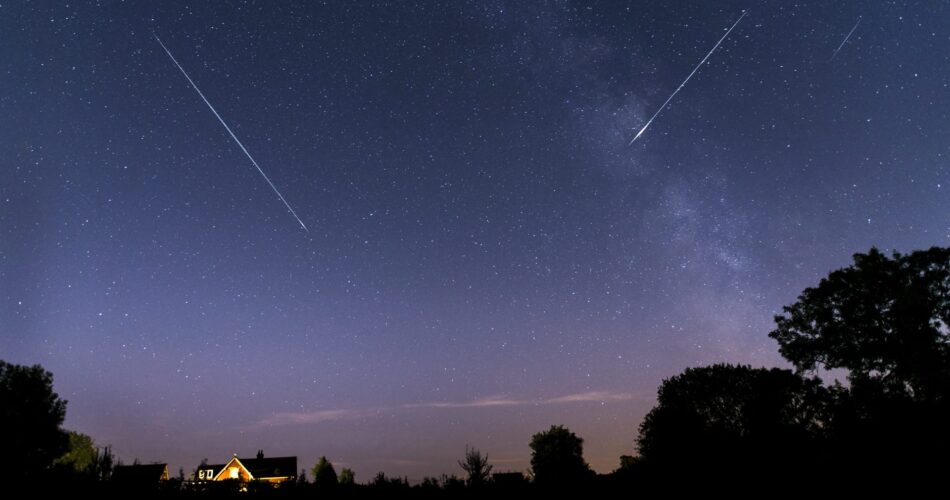Small steps for Starlink, one giant leap for Astronomy.

Ever since SpaceX launched its first set of Starlink internet satellites into the sky in 2019, Astronomers and enthusiasts alike have worried it’ll ruin the night sky. Thankfully, SpaceX has now entered into an agreement with The National Science Foundation (NSF) to reduce the effects of satellites on astronomy.
For those unfamiliar, Elon Musk’s company SpaceX runs Starlink, a collection of internet-beaming satellites in low Earth orbit. And while it delivers high-speed internet to areas that typically wouldn’t have it, there are a lot of satellites floating around the sky.
We’ve seen several examples of what happens to a telescope view when a satellite goes through it. You can find astronomers complaining all over Twitter about the situation and those “satellite trains” crossing the horizon. Thankfully, this latest news from the NSF confirms the two are working on a solution.
“For astronomers, Elon Musk’s SpaceX Starlink is comparible to someone sneaking into your livingroom with a jar of fireflies and releasing them during the finale of Game of Thrones.” – Dunlap Professor and Tap host Dr. Mike Reid gives us his space news roundup. pic.twitter.com/9sXxI9rfPT
— Dunlap Institute (@DunlapInstitute) November 23, 2019
Several reports suggest that the FCC allowed SpaceX to launch roughly 7,500 Starlink satellites into orbit. However, the company aims to release at least 30,000, if not more, and the FCC told SpaceX to coordinate with the NSF before it grants permission for the next license.
Well, that’s precisely what just happened. In agreement with the US National Science Foundation, SpaceX promised to continue working on ways to make Starlink satellites invisible to the naked eye, make them no brighter than the 7th magnitude, and reduce their effect on astronomy instruments.
Additionally, SpaceX compromised on a stance to require observatories to turn off lasers when Starlink passes by and will no longer need those optic systems to be disabled. It’s worth noting that SpaceX said it’ll work to eliminate the impact of Starlink “to the extent practicable,” so we’ll have to wait and see.
And finally, in a joint statement, the two said, “the NSF and SpaceX continue to explore methods to further protect ground-based astronomy.” So, it looks like Starlink will continue launching satellites into the sky, expanding internet access to more regions while trying to keep the night sky beautiful and clear.
This is good news for astronomers, and if you want to see some stars, get a good telescope and enjoy the view.
via The Register



